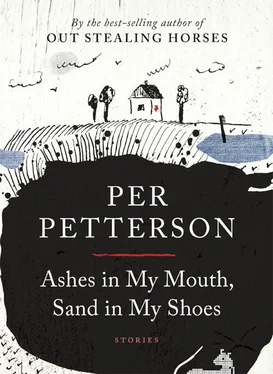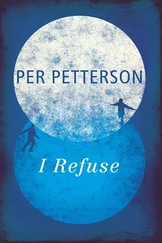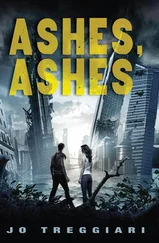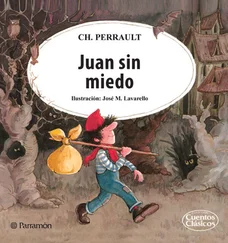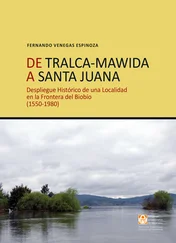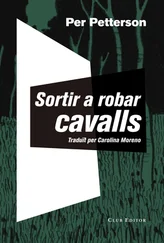‘Arvid fucks his mum! Arvid fucks his mum!’
They would not stop, they just chanted louder and louder, and he felt his fury rising as it always did, even though he tried with all his might to hold it back, and perhaps the worst thing was the way he blushed. With willpower alone he tried to stop it from spreading, but he failed, for just to say that one word aloud was like pulling a trigger, and he had no control over anything, and then he turned and through a mist he saw their faces expanding into huge grins.
It was too late to stop now, so he just smacked his sandwich into the face of the boy closest to him, splashing jam everywhere. The little group howled with joy and shouted:
‘Here it comes! Here it comes! He’s lost it now! Look at him!’
He flailed around, aiming for a face, hit one, maybe two, but then there was a thud above his right eye and he went down with a boy on top of him, and it was Bjørn, who else. Bjørn, who was ten years old and almost a teenager, who had seen all kinds of things and was as strong as the bear he was named after, and Bjørn grabbed Arvid’s hair and forced his head back so they were staring into each other’s eyes. Arvid could feel the tarmac rubbing against the back of his head, and then with rage in his voice Bjørn shouted:
‘When will you get it, you moron. People fuck, or else there wouldn’t be any babies!’
‘Only pigs fuck!’ Arvid screamed back.
‘No! People fuck just like pigs or dogs or horses or monkeys in a cage! Get that into your thick skull!’ Bjørn was almost in tears he was so angry.
‘People aren’t animals! People are people!’
‘Jesus, you’re so hopeless,’ Bjørn said. ‘You won’t even get through school.’ He got up, turned to the others standing round them in a circle, and said:
‘We’re wasting our time. He’s a complete idiot. He’ll end up in remedial class and become an arselicker.’
And so they left, shaking their heads, roaring with laughter, and Arvid was lying on the road, staring up into the air, and he was crying. But they were right, he knew that now, for he had asked Dad, and although Dad coughed and looked away and both of them blushed, he didn’t deny it. It was the only explanation, but it was a lot to take for someone who had just stopped believing in God.
People fucked. Or else there wouldn’t be any babies. That’s the way it was. But he would never do it, wouldn’t want to or dare to or manage to, and he couldn’t care less whether he had children or not. But he felt strangely sad when he thought about that particular thing.
He believed all the hollows in the fields by the women’s prison were caused by bombing. He imagined that the world was once completely flat and the bombs that fell during THE WAR, in his mind like big heavy bumble bees, had formed the landscape the way it was now.
When Dad talked about THE WAR, and he often did, for he had been a part of it, Arvid could picture these hollows, and when they were playing in the little valley they called Dumpa it struck him that some of the bombs must have been really big.
When he found out that no bombs had fallen around where he lived, he couldn’t believe it, for the image of the rolling fields and the bumble-bee bombs had become part of the boy he was, and there was nothing to put in their place.
He thought the women’s prison was a church, and it looked like a church, but although he knew there were always people inside he never saw anyone coming out. It was so quiet in the courtyard behind the high wire fence, the gravel was red, like nowhere else in the district, and the tall doors were always locked. Sometimes there was a black car in the courtyard, but he had never seen it coming or going.
He knew there were always people inside for when he played in the fields he saw faces at the windows, and when the women inside waved he waved back, and when the wind was blowing from the right direction their voices fluttered like scraps of paper on the shining autumn air. But when they shouted to him, he ran, and after he was told it was not a church he only played there if he forgot he shouldn’t.
One time when he did forget, there was a woman standing at a window shouting:
‘Give my love to Joakim!’ And she started to laugh aloud when she saw him run. He covered his ears, for he didn’t want to hear, but it was too late and he realised he would always remember the name: Joakim.
A few days afterwards Dad read aloud from the newspaper about someone who had escaped from prison and Arvid knew at once who it must have been.
That night she came to him in his dreams and she shouted Joakim! Joakim! until he woke and sat up and he too called Joakim! Joakim! and Mum came bursting into his room and said, for God’s sake, what is going on here?
Between the high rises and the terraced houses there was a barn. It was red with large grey peeling patches and had stood there for ever, for as long as he had lived, and even though Dad said it was part of a farm that had been there before, Arvid couldn’t care less. The barn was there, and was the Barn.
‘Let’s go and play in the Barn,’ the children said to one another, because it was a good place to play, and the fact that they were not allowed made it even better. The grown-ups said it was because the place was falling down, but Arvid thought why would a barn that had stood for as long as he had lived suddenly decide to collapse right now?
The Barn had a traditional ramp and a big barn door that was shut with a bolt and a big padlock. Arvid and Jon Sand had tried to open it many times, Jon had even tried with a fire-cracker he had swapped with his big brother for a copy of Illustrated Classics , and had stuffed it into the lock. There had been a bang, but that was it. The lock was still intact and the door still closed.
They jumped from the barn ramp, and the trick was to jump from as high as possible. The higher, the tougher. It could be dangerous, but until now two broken legs were the worst that had happened and that wasn’t too bad.
Arvid was almost up by the door when he jumped, and there was such a wonderful rush in his belly when he leaped, and he rarely hurt himself because he was so light. The big boys called him Death Diver, and whenever they said that he smiled inside. But he didn’t smile with his lips, he just curled his top lip the way his mother had shown him that Elvis did when he was at his peak, and if there was something Mum knew about it was Elvis. When they played Elvis on the radio she sat at the kitchen table with a cigarette and sang and smoked and knew all the songs by heart, and every morning she sang ‘It’s Now or Never’ in the bathroom.
Arvid had practised in front of the mirror in the hall and after a while he was so good at curling his lip that many people thought he had been born like that.
But Jon was the one who could jump furthest. Arvid did the best he could and yet he was always half a metre behind.
‘Your legs are too short,’ Jon said. ‘See for yourself, your knees are almost in your shoes!’ But that couldn’t be right because the doctor at school had said he had a well-balanced body, and when he asked his mother what that meant, she said every part of his body was in its right place and that was a good thing.
In any case Arvid thought it was better to be the Death Diver than an ordinary long jumper. Jon probably thought so too, Arvid guessed, but he didn’t say that, because they were friends and shared whatever fame and glory came their way.
‘I wonder what’s inside,’ Arvid said. They stood there with leaves in their hair, sand in their shoes, staring at the shabby old barn, their knees giving way and their legs shaking after a long but happy stint of jumping.
Читать дальше
